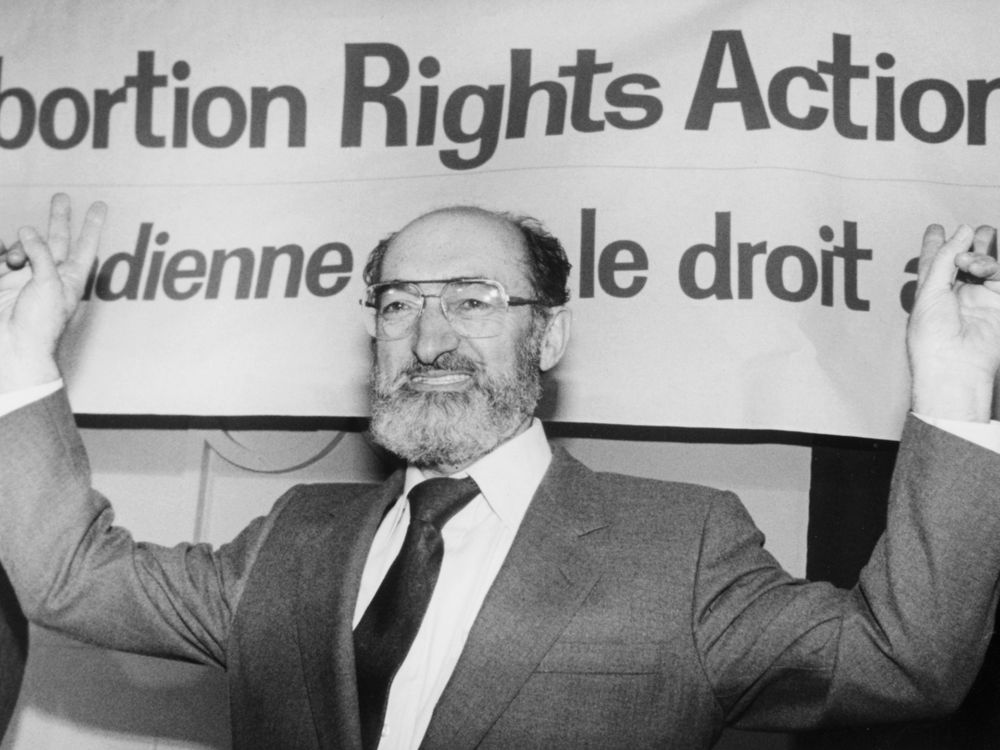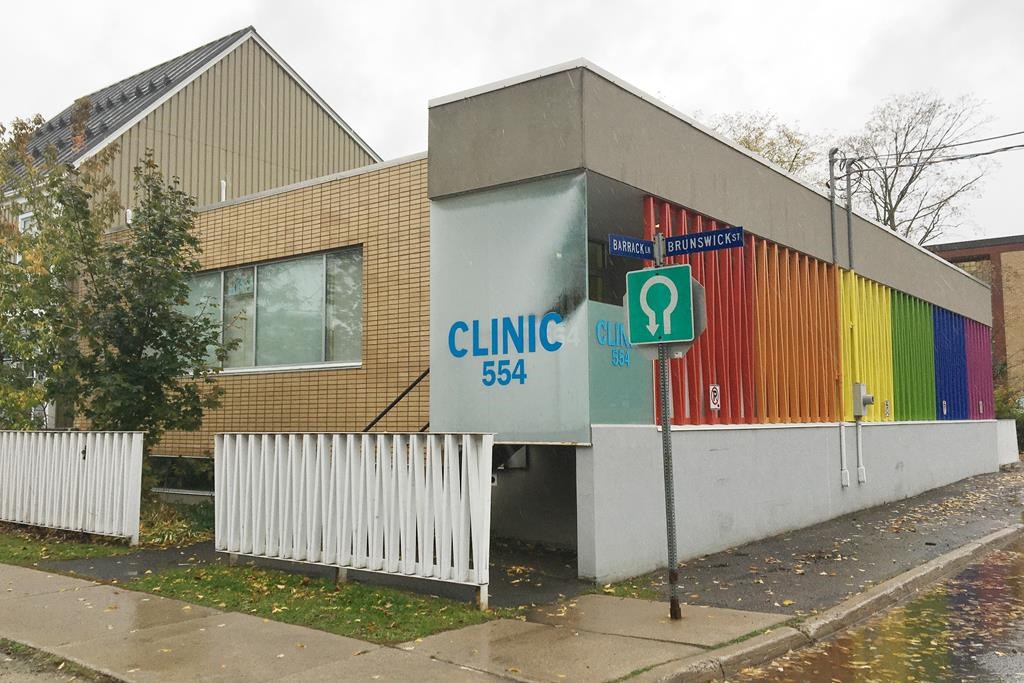The party of Frank McKenna, the author of some of the most restrictive abortion rules in the country, has increasingly moved to make abortion care more accessible over the last number of years.

Now, that shift may continue as the candidates looking to sit at the helm of the party are pledging to finish dismantling the legacy of the former premier by striking down McKenna’s final abortion-based regulation as well as actively expanding access to the procedure.
Three candidates vying for the leadership of the New Brunswick Liberal Party say they would expand access to surgical abortion if they were to form government.
Robert Gauvin, TJ Harvey and Susan Holt all say they would allow public funding of surgical abortions performed outside of hospitals and work to ensure the procedure is available and accessible across the province. The fourth leadership candidate Donald Arseneault was not available to talk about his policy pitch.
“It took the Liberal Party of New Brunswick a long time to undo that legacy of Frank McKenna,” said Donald Wright, a political scientist at the University of New Brunswick.
“It’s surprising to me … how long it’s taken the party to catch up to the Canadian consensus.”
Making abortion access difficult
In 1989, fresh off the 1988 Supreme Court of Canada’s Morgentaler decision, which held that criminalizing abortion violated the Canadian Charter of Rights and Freedoms, New Brunswick instituted several regulations intended to make obtaining an abortion difficult.
Regulation 84-20 of the Medical Services Payment Act stated that abortions could only be performed in a hospital by a specialist and only after two doctors deemed the procedure medically necessary.
Then premier Frank McKenna famously promised Dr. Henry Morgentaler “the fight of his life” should he ever try to open a private abortion clinic in the province.
In 1994, Morgentaler did just that, offering abortion services for a fee and providing an alternative to the province’s restrictive system. McKenna kept his word and the province took Morgentaler to court.
Every premier from McKenna to David Alward continued that legal battle, up until Morgentaler’s death in 2014.
Shortly afterwards, the Fredericton-based clinic announced it would close.
“The Morgentaler Clinic said that they had been operating in the red for years. They had a wonderful policy that they wouldn’t turn anyone away if they couldn’t afford an abortion,” said Beth Lyons, the executive director of the New Brunswick Women’s Council.
“New Brunswick was then in the place where you can only get an abortion where two doctors sign off on it.”
That was when the three-decade consensus on abortion between the Liberals and Progressive Conservatives began to crack.
Political party consensus cracks

Get weekly health news
At a Liberal policy convention in April 2014, two motions were passed, loosening the party’s stance on abortion. The party had a young new leader, Brian Gallant, who similar to new federal party leader Justin Trudeau, said he was proudly pro-choice.
During that year’s election, abortion policy became a major issue, with Gallant promising to review the barriers to access and incumbent PC Premier David Alward saying he would stick to the status quo.
Gallant’s Liberals won a majority and shortly afterward announced that the two doctor rule would be removed, as well as the requirement that a specialist perform the procedure.
But the regulation preventing the public funding of out of hospital abortions remained.
“Yes, Gallant did shift the party towards choice, but he didn’t go all the way,” Wright said.
When the former Morgentaler Clinic was bought and revived as Clinic 554 in 2015, abortion services were still paid for out of pocket.
Katie Davey, who worked as a policy advisor to Gallant, said the intent was always to expand public access, even if it ultimately fell short.
“I think many folks, including in the premier’s office, would agree that perhaps the expansion did not go far enough,” she said.

When Gallant was defeated by current premier Blaine Higgs in 2018, surgical abortions could be accessed through public hospitals in Moncton and Bathurst or by paying out of pocket at Clinic 554 in Fredericton. Medical abortions were also available through the prescription of Myfegymiso, the so-called abortion pill, which New Brunswick became the first province to fund through Medicare in 2017.
The next shift in party policy came during the 2020 provincial election when then-Liberal leader Kevin Vickers promised to ensure out-of-hospital abortions would be funded. Vickers may have lost, but that promise has remained official party policy.
The party will select a new leader on Aug. 6 and at least three of the candidates are not only affirming that that plank will remain, but want to go further and ensure that access, and choice, is improved across the province.
Robert Gauvin, the only candidate currently holding a seat in the provincial legislature, says that his feelings on the matter are clear, having voted in favour of a 2021 motion calling for out-of-hospital abortions to be funded by Medicare.
“We’ll have to look at providing easy access all over the province,” he said.
He also says that mental health support should be provided in order to help people cope with what can often be a difficult decision.
Former MP TJ Harvey said that a concerted effort to remove barriers to accessing surgical abortion needs to be made.
“I think we need to shift towards recognizing that in mainstream society, this is something that’s important. … For women to have the ability to make choices about their own bodies is hugely important,” he said.
When asked how he would aim to expand access, Harvey said that the first step is to understand where the barriers exist and what can be done to overcome them.
“We need to start, number one, with a willingness to change the system, which I think all of the candidates running for leadership, is hugely important,” he said.
“We need to be encouraging open conversations from within government between the bureaucracy and government officials as well as healthcare professionals and our two health authorities to try and come up with collaborative solutions that are going to move the bar on this.”
Businesswoman and executive Susan Holt says that expanded access looks a little different than it did a few years ago.
“You can axe 84-20 today and that won’t change a single thing,” she said.
Clinic 554 shuttered its family practice in 2020, but clinician Dr. Adrian Edgar has continued to offer one day a week of reproductive health services. Just ensuring that the clinic is paid by Medicare for those services isn’t good enough when it comes to expanded access, Holt says.
“Increasing access means expanding its availability at hospitals and clinics and I think we need to do that in collaboration with patients, providers, advocates and the clinicians that are working in this space so that we can find the right geographic solutions so we can make sure that people have access to health services in every corner of our province,” she said.
“There’s a conversation to have, as in where and how.”
Expanding access to abortion
Back in 2014, Brian Gallant had promised that his government would examine how to further expand access to surgical abortions. But when Davey began looking into how that could happen, there were a number of hurdles she encountered.
“Once the decision was made, a second layer had to unpack what it looked like to expand access,” she said.
It was decided that public access should be expanded to hospitals outside the Moncton and Bathurst areas. That wasn’t as easy as it initially appeared, Davey said.
“Our hospital infrastructure is not, first of all, that robust and up to date these days, but it’s also stressed,” she said.
“So to add another service into an already stressed environment, both physically, on the infrastructure side, and the human resources side, was abundantly challenging.”
Davey said the two Moncton hospitals and the one in Bathurst were the only ones with enough space to add suites to provide the procedure. Ultimately, those challenges are what caused the province to move forward with offering medical abortions through the Myfegymiso prescription.
And while that has improved access, and caused demand for surgical abortions to fall, that doesn’t remove the need to provide meaningful access to both, Davey says.
As Beth Lyons describes it, access also means choice:
“The language of choice is important.”
“What that really gets at is we don’t know the situations under which people are seeking abortions. … With something like abortion, where it stigmatizes, where it is time-sensitive and where it is going to impact the rest of someone’s life, they need to have as many choices as possible.”
Over 30 years after authoring some of the most restrictive abortion rules in the country, the debate about how to give women those choices is now part of the leadership race of the New Brunswick Liberal Party.
According to Wright, the party has caught up to how much of the country feels on the topic and that it was the voices of women and advocates who have pushed them there.
“That’s really the story,” he said.
“The story of women who have said enough is enough, we want access.”










Comments